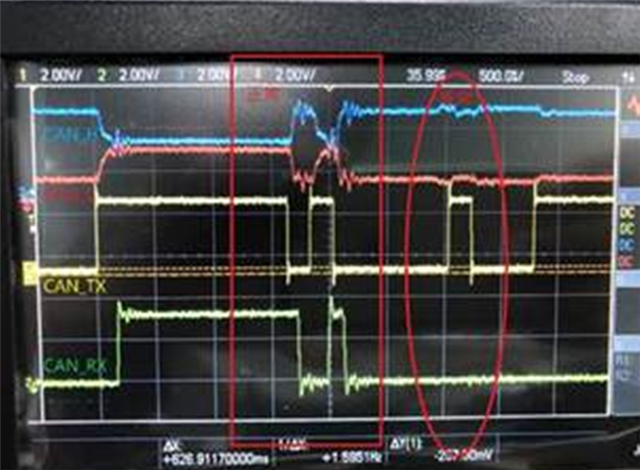Other Parts Discussed in Thread: TCAN1042HGV
Hi Team,
There is a good new that we could DIN TCAN1042HGV!
The customer uses TI transceiver and the CAN_H CAN_L signal is abnormal. This in turn causes the occurrence of error frames.
Customer would like to ask if the debug direction can be given for the waveform in the figure below.
Please also review the SCH!
CAN FD baud rate parameters:
|
|
Nominal Bit rate |
Data Bit rate |
|
CAN-FD |
1Mbit/s |
5Mbit/s |
|
Sample point |
75% |
75% |



